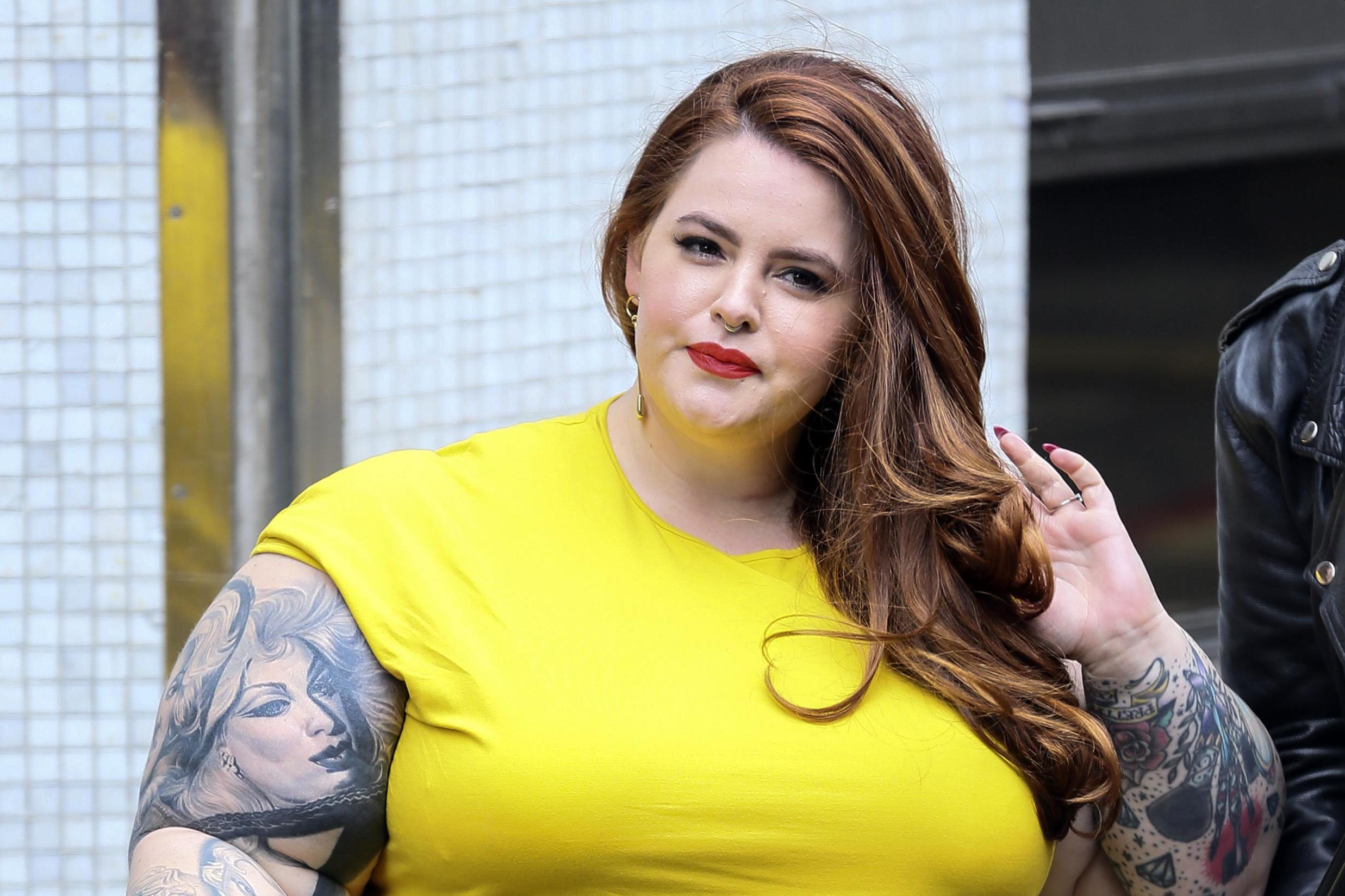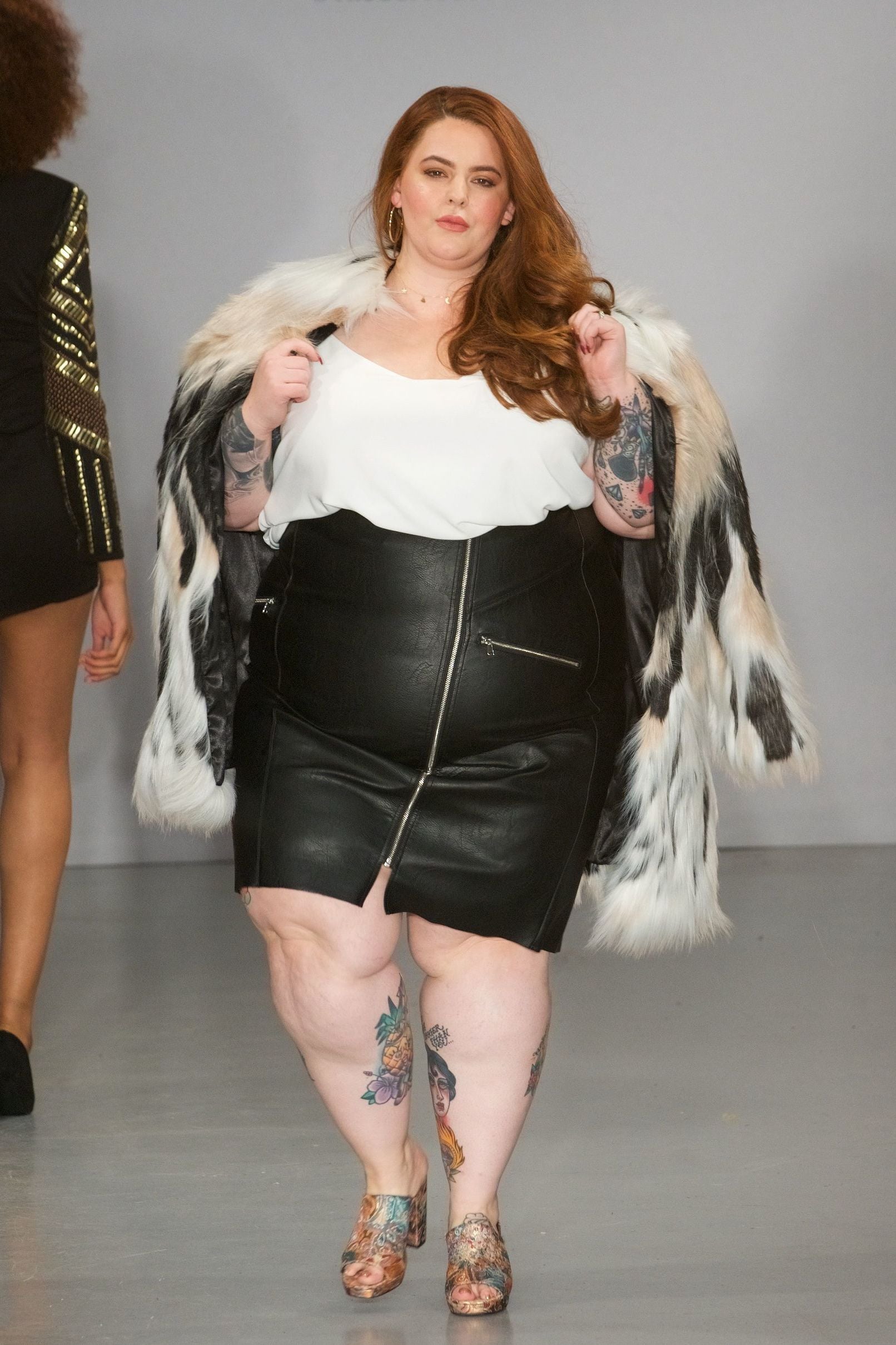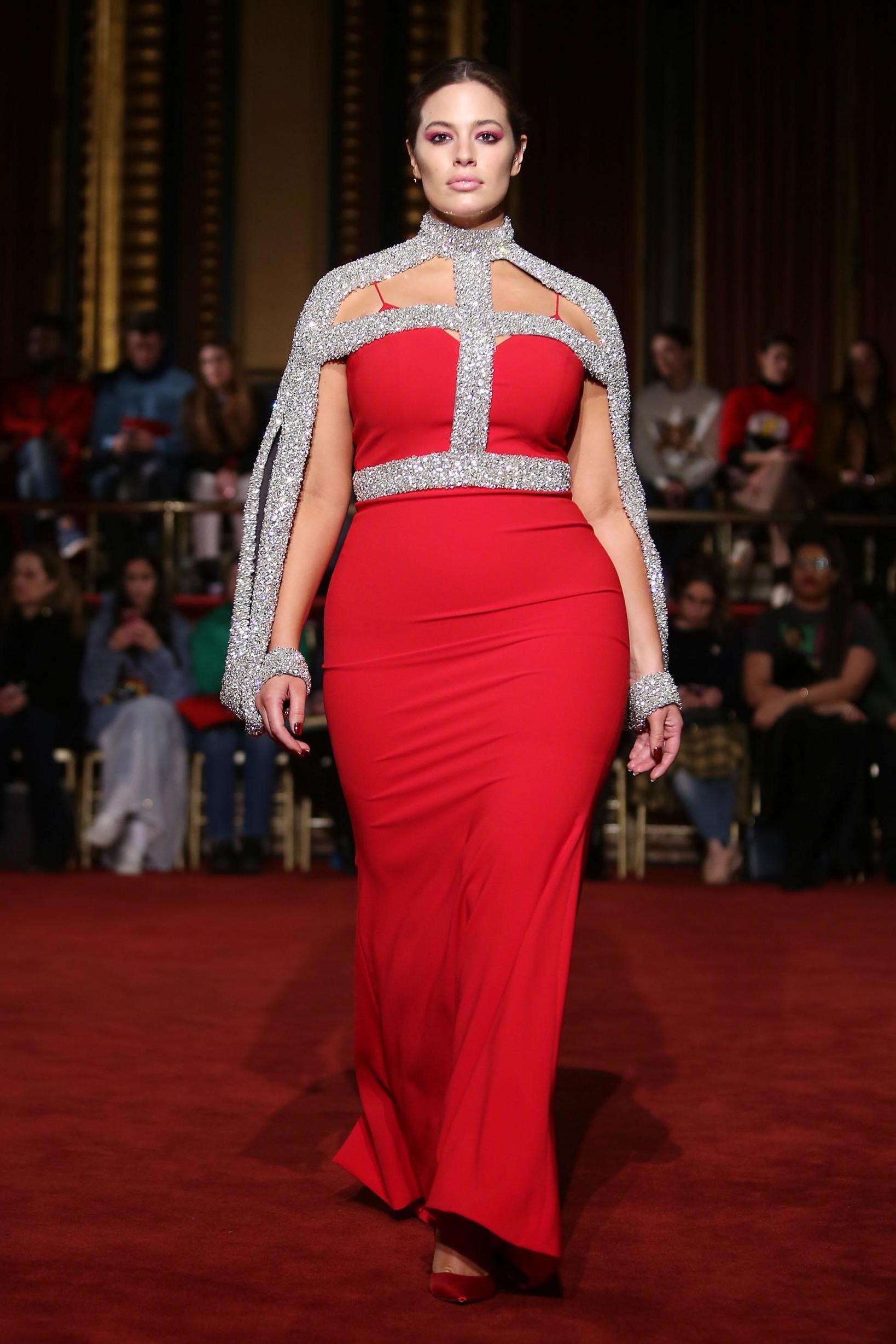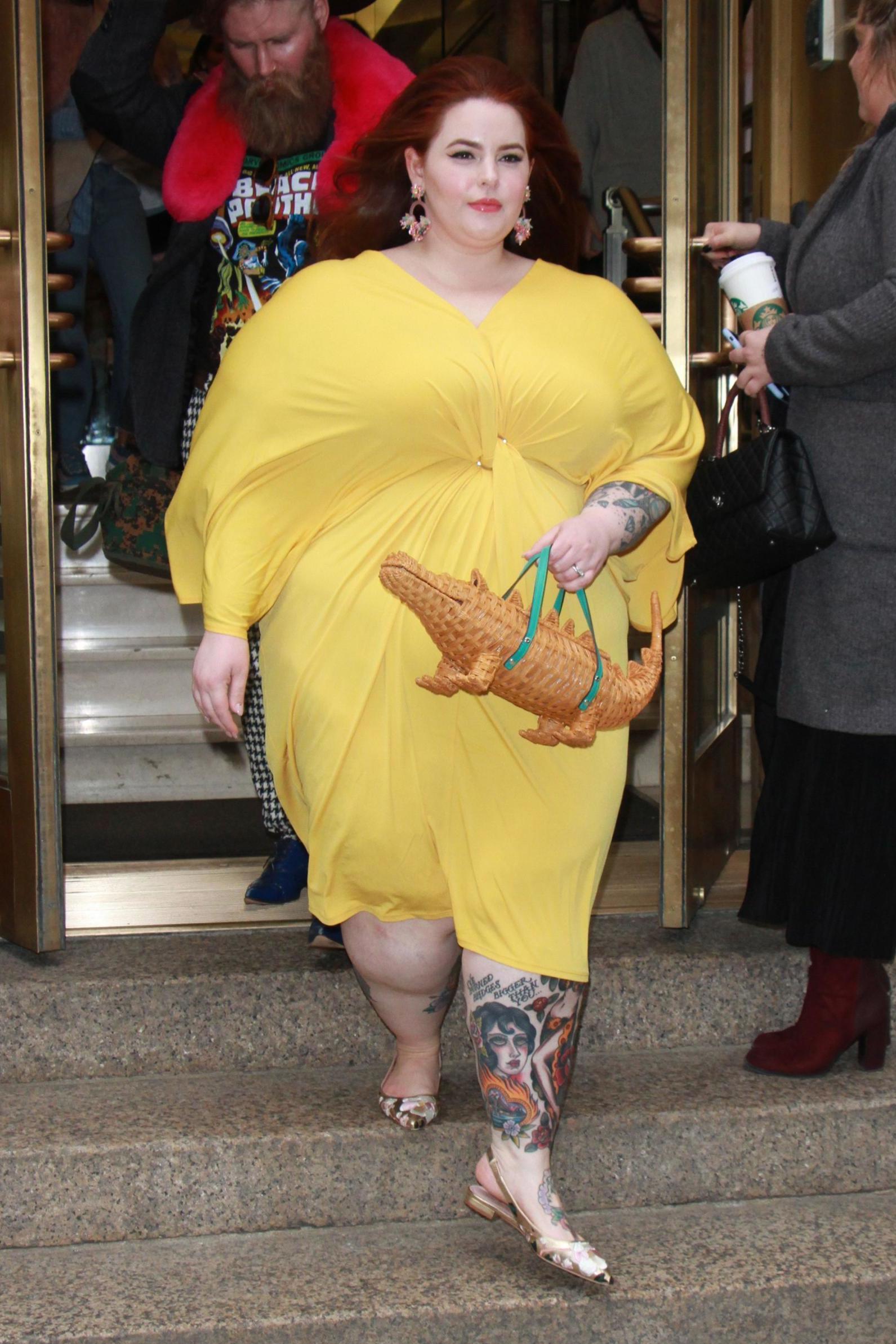The Independent's journalism is supported by our readers. When you purchase through links on our site, we may earn commission.
‘People laugh in my face when they find out I’m a model’: Tess Holliday on why plus-size models still aren’t taken seriously
Exclusive: The size 24 model on fashion’s place in #MeToo and why the industry needs a diversity wake-up call

If anyone is an emblem for body positivity, it’s Tess Holliday.
With 1.5 million followers on Instagram, the UK size 24 model is one of the most prominent plus-size voices in fashion and regularly makes headlines for her views on body image, feminism and motherhood.
We caught up with the mother-of-two and @EffYourBeautyStandards founder at New York Fashion Week to find out why, despite a handful of designers, the industry remains reluctant to embrace fuller-figured women.

“You won’t see anywhere near as many plus-size girls on the catwalk as you should,” Holliday told The Independent, citing US labels Chromat and Christian Siriano as two of the only brands to deviate from the standard wafer thin and staggeringly tall model aesthetic we’ve come to accept as the norm.
“People just do what they’ve always done,” she added.
Aside from a fear of change, one explanation for the absence of plus-size models in designer campaigns and shows might be that most of these high-end labels don’t make clothes for women above a size 12.
However, if the average American woman is a size 18 and the average Brit is a size 16, why aren’t we seeing this reflected on runways?
“Designers are either not interested in making larger sizes or they don’t feel that it’s important,” Holliday explained.

“I can wear Calvin Klein, but we’re not seeing them casting plus size girls in their campaigns or shows which is very frustrating.
“Vivienne Westwood also has some beautiful capes that fit me, even though they aren’t designed for plus-size girls.
“I know there’s a capability for these designers to make clothes in bigger sizes and I think it would be really great to be seeing that.
“Myself and a lot of other people have money to spend and we would like to have more options.”
In the wake of #MeToo and #TimesUp, there has never been a more appropriate time for womenswear designers to champion female empowerment via their collections.
A model lineup that subverts the norm by celebrating women of all shapes and sizes seems like an obvious way to do this, however, we have yet to see a single brand fully embrace such a concept.
Even in politically-charged shows such as Stella Nolasco and Jonathan Simkhai, both of whom were inspired by gender equality and the Suffragettes this season, the casting was as monotonous as ever.
“People need to put their money where their mouth is,” Holliday said.
“They just want to pat themselves on the back and say that they’re being diverse when in reality they’re not.
“I think we have to stop taking scraps and keep speaking out for what we need and want. It’s important to have a voice, especially now.”
Even when plus-size models are cast in mainstream shows (see Ashley Graham for Michael Kors), it’s often perceived by critics as a form of tokenism rather than a seamless integration.
“Casting plus size girls needs to be genuine,” Holliday stressed.

“It shouldn’t just be a publicity stunt.”
A perennial criticism thrown at vocal plus-size models such as Holliday is that they glorify an ‘unhealthy’ body type.
For Holliday, this boils down to a fundamental intolerance and only amplified the need for more outspoken women of a larger body type in the media.
“I’m not like recruiting people and starting a cult and telling people to be fat,” she said.
“Seeing someone with my body telling people to love themselves can be shocking for some people, they don’t get it.”
Occasionally, this lack of understanding has led people to mock Holliday when she talks about her career.
“People laugh in my face sometimes if they don’t know who I am.
“When they find out that I model they’re like, 'well what do you model?'
“I just want to start making up ridiculous things like that I model ankle bracelets.”
“People are closed-minded and you have to keep doing what you’re doing, I know things will change.”
Tess’s debut book The Not So Subtle Art of Being A Fat Girl: Loving The Skin You're In is out now.
Join our commenting forum
Join thought-provoking conversations, follow other Independent readers and see their replies
Comments
Bookmark popover
Removed from bookmarks